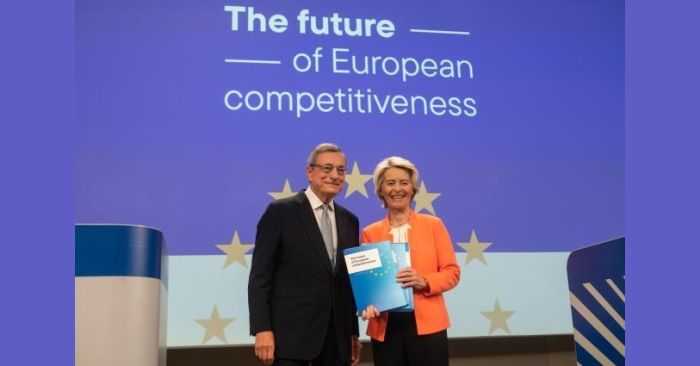
Mario Draghi presents his report on EU competitiveness

Europe must:
- focus its collective efforts on closing the innovation gap with the US and China, especially in leading-edge technologies;
- reduce high energy prices while continuing decarbonisation and the transition to a circular economy;
- respond to a less stable geopolitical world in which dependencies become vulnerabilities and it can no longer rely on others for its security.
However, according to Draghi, the priority is to address the innovation deficit. His key demands are as follows:
Europe needs to improve the conditions for breakthrough innovation by addressing the weaknesses of its joint R&I programmes.
The report recommends a reform of the next EU Framework Programme for Research and Innovation in terms of prioritisation, resource allocation, governance and financial capacity.
First, the programme should focus on a smaller number of priorities.
Second, a larger share of the budget should be devoted to funding breakthrough innovations.
Third, the programme should be led by project managers and individuals with a proven track record at the forefront of innovation, and - to maximise access for young, innovative companies - application procedures should be faster and less bureaucratic.
The organisation of the programme should be redesigned and streamlined to become more results-oriented and efficient.
Finally, the budget of the new Framework Programme should be doubled to €200 billion over seven years, subject to reforms.
At the same time, better coordination of public R&D in the Member States is needed. A Research and Innovation Union should be established to develop a common European R&I strategy and policy.
To improve coordination, the EU could promote a "European Action Plan for Research and Innovation" developed by Member States in cooperation with the EU Commission, the research community and private sector stakeholders.3. It is also important to establish and consolidate European academic institutions at the forefront of global research. The report recommends doubling the ERC's support for basic research, significantly increasing the number of grantees without diluting the amount they receive. In parallel, the EU should introduce an excellence-based, highly competitive 'ERC for Institutions' scheme to provide the necessary funding for academic institutions. A new scheme for world-class researchers ('EU Chairs') is also proposed to attract and retain the best academics by recruiting them as European civil servants.
Europe must "make it easier for inventors to become investors" and make it easier for successful companies to scale up.
A better funding environment for breakthrough innovation, start-ups and scale-ups is needed to remove barriers to growth in European markets.
All other demands and recommendations can be found in the full report




